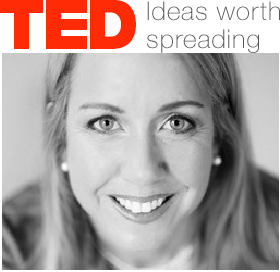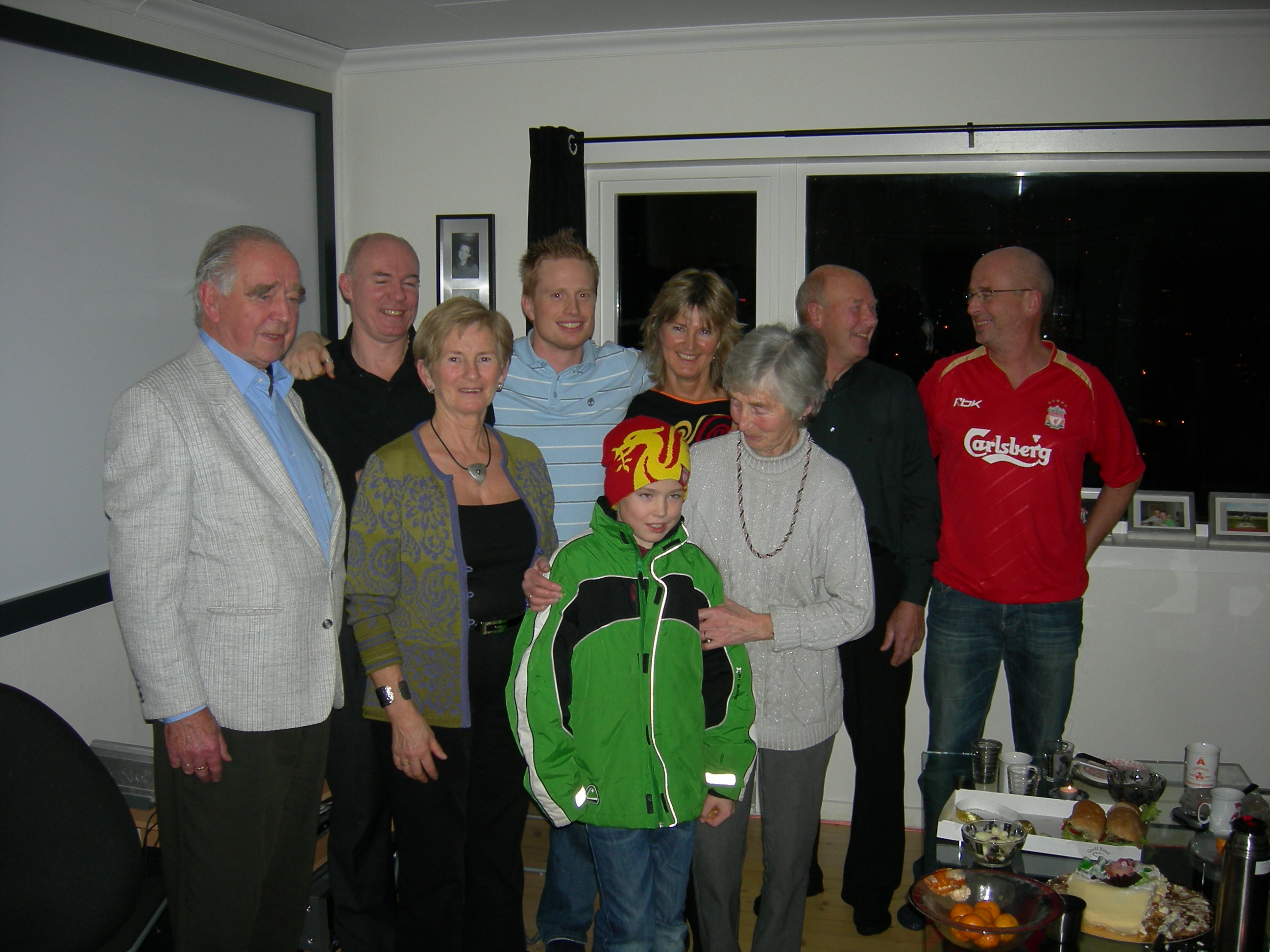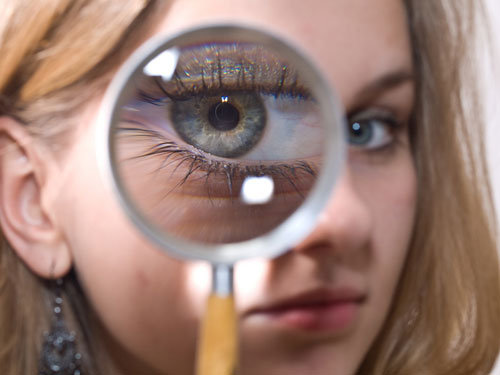
Dear reader. Please sit down, relax and take a deep breath…
Now, ask yourself the question of questions:
What are the most important things in life?
Think about that for a moment and then start reading. Your life might never be the same…
We all move through life differently
Some prefer to do as little as possible, others live at full speed.
What all of us have in common though, is that we spend our time on something. Have you ever thought about how you spend your time and why?
Ask yourself these two fundamental questions:
- What are the 3 things you spend most of your time on?
- What are the main reasons why you spend your time in this way?
We don’t know where we’re going
The reason the above questions are so valuable is that moving doesn’t mean we’re going in the right direction.
Ask yourself the following questions to see if you too find some truth in this:
- Do you know what you want in life and if yes, what do you want?
- Do you sometimes feel you don’t have time to do what you really want to?
- Do you sometimes do things not because you want to but because of others’ expectations or to fit in?
- Have you ever gone through a mid-life crisis or know someone who has?
- Have you ever continued a relationship with someone even though it wasn’t good for you?
- Have you ever spent lots of time working, exercising, or doing something else that you later realised wasn’t all that important?
We can’t always know what’s right for us. But do remember; moving doesn’t mean we’re going in the right direction.
Even though we can never know for sure what the right direction is, it’s helpful to spend time thinking about our direction, trying to understand ourselves and what we want out of this life of ours.
Perhaps we should even dear asking ourselves the question of questions:
What are the most important things in life?
The four most important things in life are….

This tree in Namibia could certainly be the tree of life. It’s about 10 meters wide!
Below I’ll outline the things I believe are the most important in life for almost every human being alive. Yes, we’re all different, but just as we all need air and water there are certain other things we all need too.
The way I define “life” is pretty simple:
“Life is the ability and time we have to interact with, and experience the world”. Check out this post for more on the matter.
The underlying assumption my life-view is based on is:
“Living a great life means interacting with the world in a way that gives us meaning and positive emotions without causing harm.”
With that in mind; here’s my model of the four most important things in life:

As you can see from the model above I believe “health”, “relationships”, “positive self-view” and “purpuse, values and dreams” are the four most important things in life.
Take care of your health
“Health is life. Care for it as you would care for your newborn child.”
Poor health will both reduce the time you have in this world and your capability to live the life you want to live. Therefore, if we want to live for a long time with a mind and body that can take us where we want, we must take care of our health.
I’m not saying life can’t be good if we’re sick, disabled or have other health challenges. I’m saying that people would like to feel capable of living the way they value and to live for a long time. Health, consequently, is absolutely fundamental.
Unfortunately, most of us only realize the importance of health when it’s gone. That’s a great shame. The good thing is that we’re capable of influencing our health and it’s easier than most people think.
Check out this link for a model that describes the key drivers of health and what to do to become healthy.
Invest in your relationships
“Spend quality time with the people you love and the relationships will grow stronger. Don’t, and they’ll slowly fade away.”
 My friend Ivi and I taking care of our friendship at a party!
My friend Ivi and I taking care of our friendship at a party!
When talking about life we’re used to hearing ourselves and others say that the most important thing in life is family and friends. It’s hard to disagree and the evidence supporting this is overwhelming. What’s not as well understood is how to invest in our relationships to make them flourish and grow.
The above is likely one of the reasons why we see so many people divorce, why the time we spend with our friends steadily declines as we age and why many of us spend more time in-front of the TV or computer than we spend with our kids.
Personally, I don’t think these things happen because we want them to. I think they happen because we don’t allow ourselves the time to reflect on what really matters and consequently we’re not fully aware of the impact small choices we make in our day-to-day lives have on our relationships. In order to have good relationships I believe we need to both spend a considerable amount of time with the people we love and be really present during that time.
Check out this post to read about the key skill you need to build great relationships in life.
Install a positive view of yourself
“How we view ourselves is the foundation on which our life is built.”
When we don’t have a positive self-view we typically compare ourselves with other people, feel insecure about ourselves and are too sensitive to the opinion of others. We also tend to make choices based on other people’s expectations rather than do what truly feels right for us.
Having a positive self-view on the other hand means accepting ourselves for who we are and what we believe in. It means having the courage necessary to make our own decisions and to live life the way that’s right for us.
I realized not long ago that I’ve lived most of my life without having a strong enough self-view. Only during the last few years have I been able to understand and accept myself to the degree where I very rarely feel “below” anyone or feel afraid to say things I believe because of other people’s judgment. I still have improvement areas however, especially with regards to dealing better with negative feedback and rejection.
How you think is one of the key factors that influence the view we have of ourselves. Learn about the four components of thinking and how to think effectively here.

Your hair might be long, even red so-help-me-god. Who cares? Be yourself.
Live your purpose, values and dreams
“Reflecting on what kind of person you want to be and what you want out of life will increase your understanding of yourself. Living according to this understanding will give you a sense of purpose, fulfilment and peace.”
Being healthy, having great relationships and a positive self-view is wonderful. But who’s the “you” in you? What makes you different to everyone else?
Let’s talk about purpose, values and dreams.
Your life-purpose
Your life-purpose is a clearly stated, high level description, of what you want to do with your life.
Understanding your purpose is a journey that requires time and reflection. I feel I’ve only understood my own life-purpose reasonably well for a few years and for all I know my life-purpose might change in the future. Here’s my current purpose:
The purpose of my life is to feel good, be good and do good.
Why are you here on Earth? What’s your purpose?
Your values
Values are the thoughts and behaviours that define how you want to be as a person.
The following analogy is a good way to understand values:
Picture yourself being in a boat. You’re sailing at night and the sea is rough. Unfortunately for you, the weather is horrible and you don’t know if you’re steering the boat in the right direction. Suddenly you see a lighthouse straight ahead! You quickly steer the other way and get yourself, the boat and your crew out of danger.

Values can act as lighthouses or guiding stars like the Northern Star. Values help you become aware of when your thoughts and behaviours aren’t alligned with the kind of person you want to be, just as a lighthouse make you aware of where to sail. Consequently, values can help you make better decisions in life.
Here are four values I love:
It’s important that your values are closely aligned with your life-purpose. As for your life-purpose, understanding what your values are is a journey that requires time and reflection.
What are the words that define how you want to think and behave?
Your dreams
Dreams are things you want to experience in life.
Want to travel the world? Want to become a world-class teacher? Want to make the world a place where every creature is treated with respect? I know I do.
Dream a little every day. Think about what you’d like to do, see, think, feel and so on. Don’t let your current as-is situation define what you dear hoping for.
Dreams exist to be pursued! Many dreams do come true and the more positive your self-view is the easier it will be for you to achieve your dreams. Read about how to discover your dreams here.

Spitzkoppe in Namibia is a place where dreams are born
The four most important things in life are highly interdependent
Health. Relationships. Self-view. Purpose, values & dreams.
All of these influence one another. For example, how healthy you are affects the energy and time you have available to spend on the other three.
Your self-view affects your mental health, how you interact with people and to what degree you “allow” yourself to live your purpose, values & dreams and so forth.
Improvement in any one of these areas will consequently not only have an impact in that area but the other areas as well.
Are you ready to go beyond knowing what’s important in life?
If so, enroll to our new online course on how to design and live your dream life through this link (risk-free – 30-day money-back guarantee). The course will help you identify what you truly want to get out of your life and help you to live your life accordingly.
Bjarte
I’ve borrowed the lighthouse picture from here. Thank you.








 My friend Ivi and I taking care of our friendship at a party!
My friend Ivi and I taking care of our friendship at a party!










